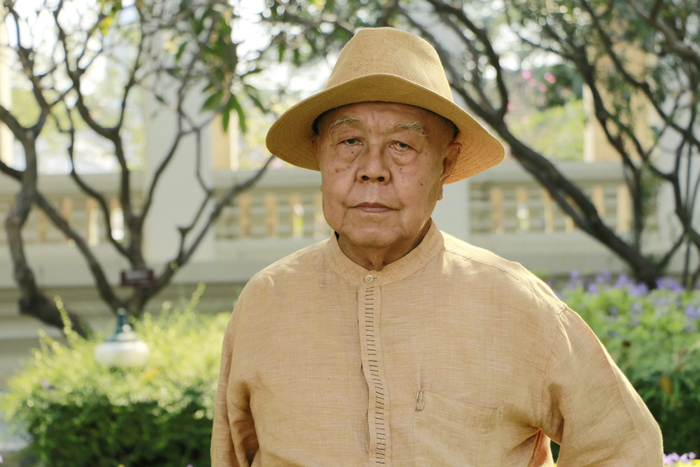
Socially engaged Buddhism is a contemporary movement that applies Buddhist teachings and practices to social, political, environmental, and economic issues. Rooted in the values of compassion, wisdom, and ahimsa or nonviolence, socially engaged Buddhism seeks to alleviate suffering not only on an individual level but also across societies and global systems.
Traditionally, Buddhism has often been mischaracterized as detached from society or overly mystical. We know from the stories of the Buddha’s life, however, that it was intense feelings of compassion for those around him – people and animals – that drove him to search for a way out of suffering for everyone. The socially engaged approach to Buddhist practice thus highlights this interconnection between personal transformation and societal change, demonstrating that true well-being, and perhaps even enlightenment, cannot be fully realized in isolation from the world’s challenges.
The Origins of Socially Engaged Buddhism
The term "Socially Engaged Buddhism" was popularized in the 20th century, particularly by Vietnamese Zen master Thich Nhat Hanh, who advocated for using the Buddhist teachings to combat pressing global issues, such as war, environmental degradation, and social injustice. Thich Nhat Hanh was moved to action during the war that ravaged Vietnam, leaving monastic isolation to help victims, but the roots of the movement can be traced back to the core teachings of the Buddha.
The Buddha’s teachings, such as the foundational four noble truths and the eightfold path, emphasize the importance of compassion and interconnectedness. Inherent in these teachings is the idea that the alleviation of suffering is not limited to individual beings but should extend to all beings and all conditions that perpetuate suffering.
Throughout history, Buddhist communities have often engaged in acts of charity, nonviolent resistance, and social justice work, but Socially Engaged Buddhism formalizes this aspect of the tradition. The movement invites Buddhists to actively engage with the social, economic, and environmental structures that contribute to collective suffering.
The Influence of Sulak Sivaraksa
One of the most influential figures in the Socially Engaged Buddhism movement is Sulak Sivaraksa, a Thai scholar, activist, and social critic. You can read our interview with him here. Sivaraksa has been a vocal advocate for integrating Buddhist principles with social justice, economic equity, environmental sustainability, and political reform – so vocal, in fact, that he has been arrested many times and even forced into temporary exile. He has been at the forefront of efforts to challenge authoritarianism, promote human rights, and address structural inequalities in Thailand and globally.

Sulak Sivaraksa’s activism is rooted in the belief that Buddhist teachings can – and indeed should – be applied to address the root causes of suffering in society. He has consistently called for ethical governance, the protection of the environment, and greater economic fairness. He founded the International Network of Engaged Buddhists in 1989, inspiring hundreds of thousands of practitioners around the world to view Buddhism as not just a path for personal liberation but as also a force for social transformation.
Core Principles of Socially Engaged Buddhism
At its heart, Socially Engaged Buddhism seeks to apply the timeless teachings of the Buddha to modern challenges. The movement is built on several key principles:
Interconnectedness
The Buddha taught that all beings and phenomena are interdependent. This principle, known as pratītyasamutpāda, or dependent origination, means that no individual exists in isolation. Socially Engaged Buddhism urges us to recognize that suffering is often the result of broader social, economic, and environmental systems. Therefore, addressing the root causes of suffering requires action on both individual and systemic levels.
For instance, environmental degradation, poverty, and violence are not just isolated issues but are also deeply interconnected with global policies, our personal consumer behavior, and social inequalities. By recognizing this interconnectedness, we can aim to address these issues in a holistic way.
Compassion in Action
Compassion is a core element of Buddhist practice, and Socially Engaged Buddhism emphasizes using compassion in tangible ways. Compassion is not limited to just empathy or kind thoughts – it also involves actively working to alleviate the suffering of others. In practice, this could mean engaging in social justice work, supporting marginalized communities, addressing climate change, or advocating for human rights. Through compassionate action, we see that there is no contradiction between working on personal spiritual growth and addressing societal suffering. In fact, they are mutually reinforcing paths.
Nonviolence
Nonviolence is another foundational principle of Socially Engaged Buddhism, based on the first of the five lay precepts to not harm or kill other beings. Violence only perpetuates suffering and reinforces cycles of hatred and division, and so we should act with kindness and respect for all beings and reject harm in all forms – whether physical, verbal, or systemic. This includes opposition to war, oppression, and all forms of injustice. Thus, engaged Buddhists have often been involved in peaceful activism, mediation, and reconciliation efforts.
Mindfulness and Awareness
Socially Engaged Buddhism encourages us to use mindfulness as a tool for awakening to the reality of suffering in the world. Mindfulness helps us to stay present, aware of our own actions, and open to the needs of others. It also helps us to reflect on how our lifestyle choices, consumption patterns, and participation in societal systems contribute to either suffering or well-being. With mindfulness, we can become more aware of how we interact with others and the environment and therefore cultivate responsible and compassionate choices.
Equity
Socially Engaged Buddhism emphasizes the importance of fairness and equity in societal structures. This is based on the fact that all of us have the same desire for happiness and the same wish to avoid suffering. Here, we can work toward economic justice, gender equality, racial justice, and the protection of all beings – whether human or animal. By recognizing that injustice is a source of suffering, we can work toward dismantling systems of inequality and promote fairness and compassion at every level.

The Benefits of Socially Engaged Buddhism
Inner Peace
Imagine how it would feel to actively engage with the world with compassionate intentions and actions. This leads naturally to a sense of personal fulfillment and inner peace, where we know that whatever we’re doing, it is benefitting ourselves and others. When we know that we’re making a positive difference, especially to those who are suffering, it gives us a strong sense of purpose, which has been shown scientifically to make us happier.
Stronger Communities
Nearly all of us want to live in happy, harmonious societies. By acting with compassion toward all beings – whomever they are and whatever their status in society – we create stronger, happier, and more inclusive communities. When kindness and mutual respect are cultivated throughout society, everyone benefits.
Spiritual Growth
Social engagement deepens our spiritual practice by allowing us to take our cultivation of compassion off the meditation cushion and into the wider world. It enables us to practice many of the things that we say we want to develop, like generosity with our time and resources, patience with those we find difficult, and tolerance for different opinions. Working in this way is an incredibly powerful way to create positive potential and pave the way toward enlightenment.
Conclusion
Socially Engaged Buddhism is a path that calls for the full integration of spiritual practice and social action. It teaches that true compassion extends beyond the meditation cushion, reaching into the world to address the systemic causes of suffering. As individuals and communities, we are interconnected. The well-being of each person is intimately tied to the well-being of all. Through mindful action, generosity, nonviolence, and a commitment to justice, we can all strive to create a more compassionate, fair, and peaceful world for all beings.